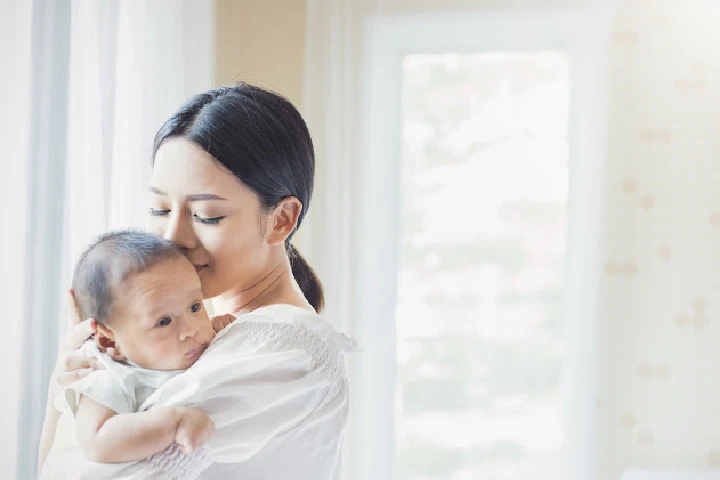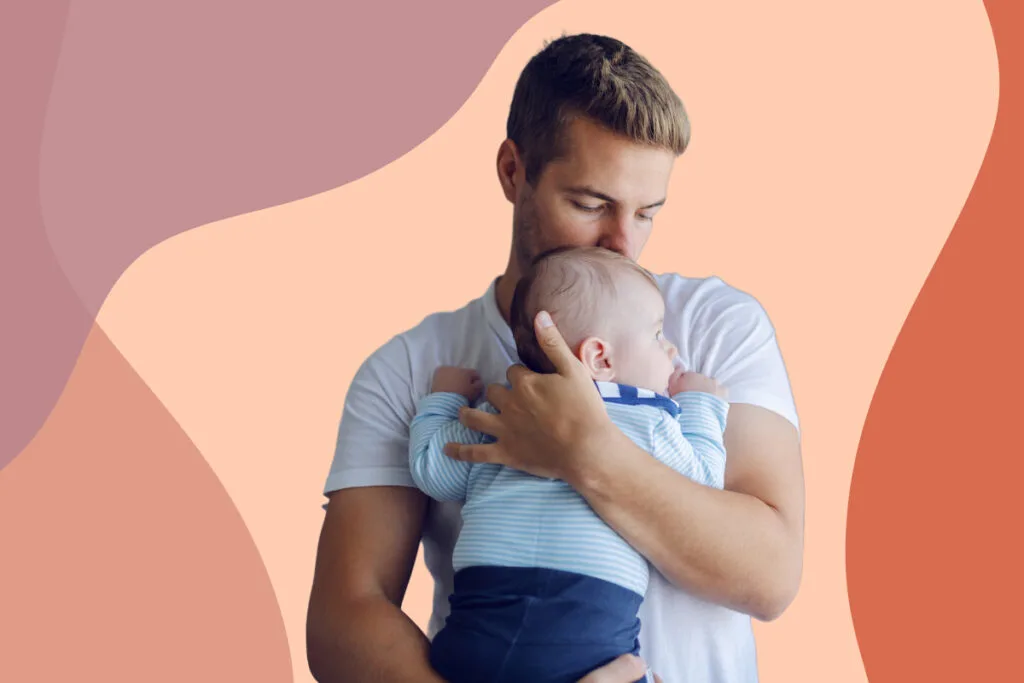TABLE OF CONTENTS
What Is Parental Love
Parental love is characterized by warmth, affection, care, comfort, concern, nurture, support, acceptance, or love that a child can feel from their parents1. The parent’s love for their child can be felt when they kiss, hug, praise, compliment, or say nice things to or about them.
Children need parents or caregivers to provide specific types of positive responses to develop physically and mentally.
This form of response is often interpreted as an act of parental love.
Without a parent’s love, children feel rejected.
Parental rejection is experienced as cold, unaffectionate, hostile, aggressive, indifferent, emotionally neglected, or lack of care.
Rejection is manifested in behavior such as hitting, pinching, mocking, shouting, cursing, belittling, uncaring, unconcerned, uncaring, or saying unkind or sarcastic things to the child.
Some parents may also appear bitter, resentful, irritable, impatient, or antagonistic toward their children.

The Power Of Parental Love
Parents are attachment figures according to the Attachment Theory. A quality parent-child relationship is uniquely important to children, since a child’s sense of emotional security and psychological well-being is dependent on it.
As a result, parental love has an unparalleled influence on a child’s character, personality development and outcomes.
Perception of parental love or rejection accounts for 26% of children’s psychological adjustment and 21% of adult’s psychological adjustment2.
According to the Enduring Effects model of development, the associations between early parental love and positive outcomes later in life is enduring and relatively constant across childhood, adolescence, and adulthood3.
The importance of parents’ love or its absence cannot be underestimated.
Parental love can benefit a child in the following ways.
Success In Life
Parental love is critical in a child’s success in life.
Harvard University carried out a special study in 1938 to find out how to raise successful people.
The Harvard Grant Study, a first-of-its-kind study, tracked the 70-year trajectory of 268 Harvard students, including John F. Kennedy.
The physical and emotional health of each participant was recorded, and their successes, or lack thereof, were analyzed.
Researchers reached a clear conclusion:
Happy and successful lives are rooted in a good relationship with parents.
A feeling of acceptance, nurture, and parental love during childhood is one of the adults’ best predictors of future success, happiness, and life satisfaction4.

Physical Health
Another Harvard study, the Harvard Mastery Of Stress Study, was conducted in the 1950s.
Researchers found that those who did not experience parent-child love were more than twice as likely to develop physical illnesses 35 years later, including coronary artery disease, hypertension, duodenal ulcer, and alcoholism5.
Self-Esteem And Self-Adequacy
Children who grow up feeling loved and accepted by their parents tend to have a higher self-esteem6.
Those who feel rejected as children develop low self-esteem and self-worth.
Their view of themselves tends to reflect that of their parents.
Lack of parental love and acceptance left them feeling unlovable and unworthy, which led to low self-worth7.
Social Competence
Kids who feel loved and accepted by their parents tend to be more socially competent8.
Parents and children develop their social behavioral orientation through repeated, familiar interactions.
These interactions carry over into peer interactions9.

Academic Competence
Academic achievement is also higher among children who perceive being loved and accepted.
As with social competence, the effects of parental love on academic competence persist into adulthood3.
Emotional Regulation
Children develop their own skills by observing their parents’ emotional regulation behaviors and modeling them.
Children, whose mothers show loving and caring emotions, use very different strategies to handle emotional problems.
Children with accepting and loving parents tend to have better emotional regulation10.
Mental Health
Adolescents growing up with parental love have better psychological adjustment.
From 45 years of nearly 2000 studies, cross-culturally analyzed data shows that children who have experienced a lack of parenting love may suffer from psychological maladjustment.
Those who grew up feeling rejected are more likely to develop depression, substance abuse and other mentally-related issues.
They also tend to have more behavior problems, conduct disorder and delinquency11.

What Can Affect Parental Love
The bonding between parents and children can lead to parental love, and three things can affect how parents and children bond12.
Parental Characteristics
Parents’ personality, mental wellbeing, and attachment representations have been linked to early bonding and parental love.
For example, studies have shown that prenatal love tends to be better if the mother is more extroverted, conscientious, and agreeable13.
Higher levels of depressive and/or anxiety symptoms of mothers during pregnancy are negatively related to the formation of the prenatal maternal bond.
Bonding between parents and children is also affected by parents’ upbringing and early experiences with relationships.
Parents with positive memories of their own upbringing tend to bond more positively with their children.
Parents’ internal working models have a significant influence on how responsive they are to their child14.
Child Characteristics
Infant temperament has been found to be associated with parental bonding.
A child with a more difficult temperament causes more parental stress and receives less parental bonding.
Children with these characteristics show more negative affect and less self-regulation. They are also more likely to develop behavior problems15.

Contextual Sources
Parental feelings and behaviors, and therefore parental bonding, can be influenced by situations.
For example, one parent’s feelings may affect those of the other parent.
Also, fathers who have better partner support are more likely to bond with their children16.

References
- 1.ROHNER RP, KHALEQUE A, COURNOYER DE. Parental Acceptance-Rejection: Theory, Methods, Cross-Cultural Evidence, and Implications. Ethos. Published online September 2005:299-334. doi:10.1525/eth.2005.33.3.299
- 2.Khaleque A, Rohner RP. Perceived Parental Acceptance-Rejection and Psychological Adjustment: A Meta-Analysis of Cross-Cultural and Intracultural Studies. J Marriage and Family. Published online February 2002:54-64. doi:10.1111/j.1741-3737.2002.00054.x
- 3.Raby KL, Roisman GI, Fraley RC, Simpson JA. The Enduring Predictive Significance of Early Maternal Sensitivity: Social and Academic Competence Through Age 32 Years. Child Dev. Published online December 17, 2014:695-708. doi:10.1111/cdev.12325
- 4.Munshi J. George E. Vaillant’s ‘Triumphs of Experience: The Men of the Harvard Grant Study.’ NHRD Network Journal. Published online October 2016:102-105. doi:10.1177/0974173920160419
- 5.Russek LG, Schwartz GE. Journal of Behavioral Medicine. Published online 1997:1-13. doi:10.1023/a:1025525428213
- 6.Litovsky VG, Dusek JB. Perceptions of child rearing and self-concept development during the early adolescent years. J Youth Adolescence. Published online March 1985:373-387. doi:10.1007/bf02138833
- 7.Robertson JF, Simons RL. Family Factors, Self-Esteem, and Adolescent Depression. Journal of Marriage and the Family. Published online February 1989:125. doi:10.2307/352374
- 8.Kim E, Han G, McCubbin MA. Korean American Maternal Acceptance–Rejection, Acculturation, and Children’s Social Competence. Family & Community Health. Published online April 2007:S33-S45. doi:10.1097/01.fch.0000264879.88687.32
- 9.Laible DJ, Carlo G. The Differential Relations of Maternal and Paternal Support and Control to Adolescent Social Competence, Self-Worth, and Sympathy. Journal of Adolescent Research. Published online November 2004:759-782. doi:10.1177/0743558403260094
- 10.Morris AS, Silk JS, Steinberg L, Myers SS, Robinson LR. The Role of the Family Context in the Development of Emotion Regulation. Social Development. Published online May 2007:361-388. doi:10.1111/j.1467-9507.2007.00389.x
- 11.Rohner RP, Britner PA. Worldwide Mental Health Correlates of Parental Acceptance-Rejection: Review of Cross-Cultural and Intracultural Evidence. Cross-Cultural Research. Published online February 2002:16-47. doi:10.1177/106939710203600102
- 12.de Cock ESA, Henrichs J, Vreeswijk CMJM, Maas AJBM, Rijk CHAM, van Bakel HJA. Continuous feelings of love? The parental bond from pregnancy to toddlerhood. Journal of Family Psychology. Published online February 2016:125-134. doi:10.1037/fam0000138
- 13.Maas AJBM, Vreeswijk CMJM, Braeken J, Vingerhoets AJJM, van Bakel HJA. Determinants of maternal fetal attachment in women from a community-based sample. Journal of Reproductive and Infant Psychology. Published online November 26, 2013:5-24. doi:10.1080/02646838.2013.853170
- 14.van IJzendoorn MH. Adult attachment representations, parental responsiveness, and infant attachment: A meta-analysis on the predictive validity of the Adult Attachment Interview. Psychological Bulletin. Published online May 1995:387-403. doi:10.1037/0033-2909.117.3.387
- 15.Gartstein MA, Putnam SP, Rothbart MK. Etiology of preschool behavior problems: Contributions of temperament attributes in early childhood. Infant Ment Health J. Published online March 2012:197-211. doi:10.1002/imhj.21312
- 16.Condon J, Corkindale C, Boyce P, Gamble E. A longitudinal study of father-to-infant attachment: antecedents and correlates. Journal of Reproductive and Infant Psychology. Published online February 2013:15-30. doi:10.1080/02646838.2012.757694
